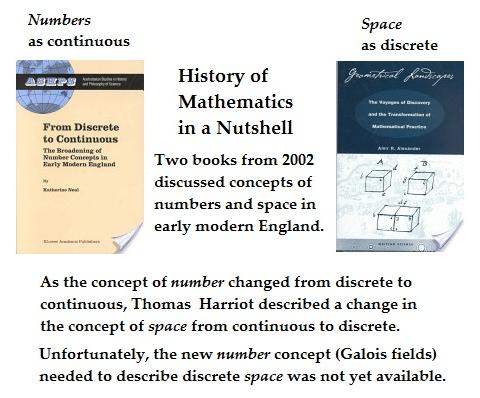|
The central aim of Western religion –
"Each of us has something to offer the Creator...
the bridging of
masculine and feminine,
life and death.
It's redemption.... nothing else matters."
-- Martha Cooley in The Archivist (1998)
The central aim of Western philosophy–
Dualities of Pythagoras
as reconstructed by Aristotle:
Limited Unlimited
Odd Even
Male Female
Light Dark
Straight Curved
... and so on ....
“Of these dualities, the first is the most important; all the others may be seen as different aspects of this fundamental dichotomy. To establish a rational and consistent relationship between the limited [man, etc.] and the unlimited [the cosmos, etc.] is… the central aim of all Western philosophy.”
— Jamie James in The Music of the Spheres (1993)
“In the garden of Adding
live Even and Odd…
And the song of love’s recision
is the music of the spheres.”
— The Midrash Jazz Quartet in City of God, by E. L. Doctorow (2000)
A quotation today at art critic Carol Kino’s website, slightly expanded:
“Art inherited from the old religion
the power of consecrating things
and endowing them with
a sort of eternity;
museums are our temples,
and the objects displayed in them
are beyond history.”
— Octavio Paz,”Seeing and Using: Art and Craftsmanship,” in Convergences: Essays on Art and Literature (New York: Harcourt Brace Jovanovich 1987), 52
From Brian O’Doherty’s 1976 Artforum essays– not on museums, but rather on gallery space:
“Inside the White Cube“
“We have now reached
a point where we see
not the art but the space first….
An image comes to mind
of a white, ideal space
that, more than any single picture,
may be the archetypal image
of 20th-century art.”

“Space: what you
damn well have to see.”
— James Joyce, Ulysses
|















